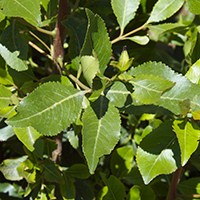Last week, the British government announced that it would ban khat, an herbal stimulant popular in the Middle East and Africa. In an email interview, Axel Klein, a lecturer in the anthropology of conflict, criminal justice and policy at the University of Kent’s Center for Health Services Studies, explained the rationale for the ban and its likely effect on khat-consuming communities within the U.K.
WPR: What was the British government's rationale for banning khat?
Axel Klein: Interestingly, the arguments for the ban were not laid out clearly. All the home secretary said in her statement was that khat had been banned in other countries in Europe and North America and that the U.K. would not be turned into a hub for khat traffickers. The ban is not justified in terms of any danger or harm inherent to the substance itself, but so as to deal with the unintended consequences of khat having been banned in other countries. We know from the process leading to khat prohibition in the Netherlands that scientific advice was also ignored, while the justification in Sweden was to stop khat trafficking to neighboring Norway, the first country in Europe to prohibit the herb.

